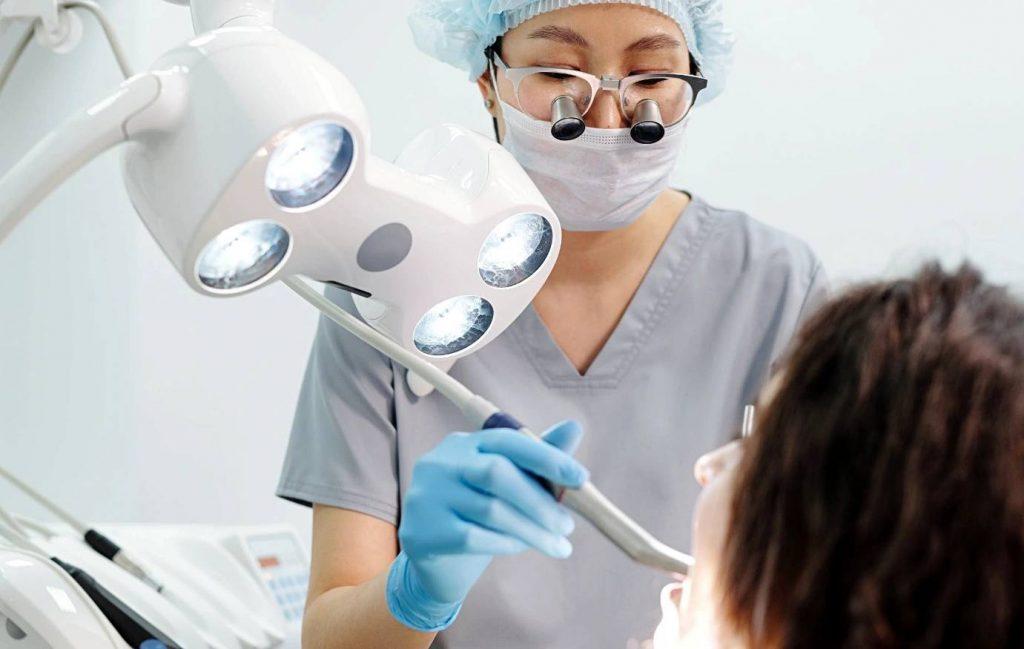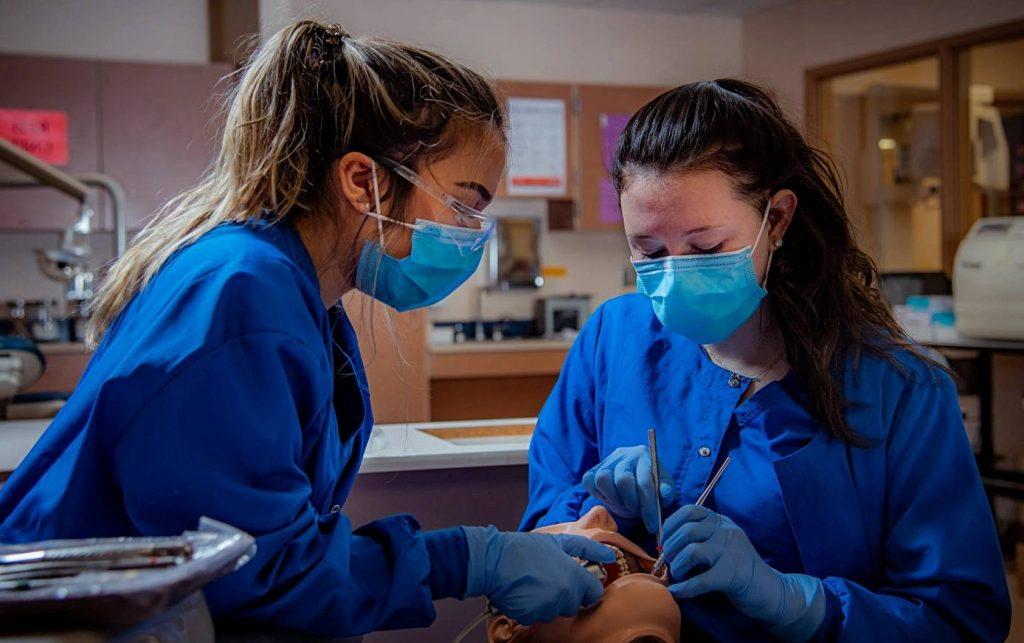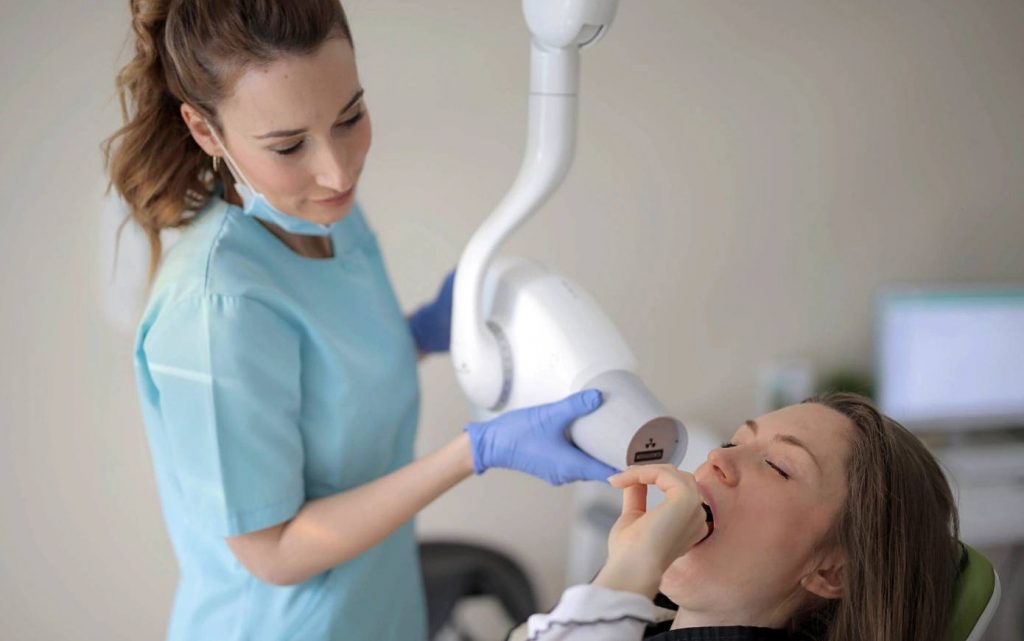Introduction:

It’s really frustrating, when you need dental work but have no money. But I am assuring you that you are currently in the right place to guide you.
In this article we have put together all helpful information which will guide you through your dental care. Please read this article to the end, because there is some advice which will help you.
It’s difficult to maintain your teeth health if you don’t have money or insurance. However, it is not impossible. All you have to do is to read this article carefully.
Most individuals would just avoid dental treatment because they lack funds. This can result in a more serious dental condition and often leads to more expensive therapies.
Other problems that can be caused by poor dental health include heart disease, meningitis, dementia, and respiratory infections. So it’s advisable to take action before things get worse.
A normal examination costs roughly $210, and having cavities filled, braces, or dentures is significantly more costly.
Those who cannot afford insurance suffer the most, and as a result, oral hygiene is neglected. Everyone deserves adequate oral hygiene, but how can they afford it?
If you need dental work but have no money, kindly follow the steps below this article. If you have any questions, please use the comment form below.
1. Pro Bono Dental Work

Why not use Pro Bono Dental Work, if you need dental work but have no money?
Pro bono is a word used to describe the public good and can be used to provide free services to low-income families.
The dentist you see may give some free assistance to help you replace your lost teeth, with no strings attached.
In other words, non-profit dental clinics operated by volunteer dentists assist by providing help, and prices are determined by your capacity to pay.
You can find them in state or municipal listings of free or low-cost dental clinics. Non-profit clinics may be a useful choice for persons with low incomes, no insurance, or who cannot afford insurance.
Non-profit clinics are those medical facilities that prioritize the welfare of their patients before financial gain.
Many charitable groups around the nation provide low-income individuals with free dental care. You should use the 211.org website of the United Way to seek such clinics.
2. Visit Public Dental Clinics

In a dentist’s office, you could discover procedures including surgical tooth extractions, root canals, cleanings, fillings, crowns, and X-rays.
Another choice is to look for dental offices that have inexpensive, set costs or sliding scale pricing according to your financial situation.
These community health centers or local or state health agencies that receive federal money operate these taxpayer-funded clinics. Alternatively, the costs may be fixed lower based on the public clinics in your area.
The government administers a number of programs for the taxpayer-funded clinics managed by community health centers or the municipal or state health departments.
The government offers funds to clinics and health facilities so that they may provide cheap dental services like crowns, root canals, x-rays, and cleaning. For dental care, you can also try the health department and federally certified health centers.
Furthermore, free clinical trials are provided in many places for persons with dental disorders or tooth decay.
If you are unable to discover clinical trials in your region, you can utilize the Clinicaltrials.gov website to look for them. You will even get compensated to participate in clinical trials rather than paying for the therapy.
3. Make Use Of Government Grants

You may go to the grants.gov official website if you wish to apply for government grants for dental care.
These are especially for individuals who cannot afford the costs of dental work or root canals. However, the patient must decide which service he requires before selecting the grant.
People might choose other aesthetic operations if they are unable to pay for their root canal fees.
These include dentures, additional fixes, and even certain aesthetic procedures. The doctor or dental professional might make this decision based on the patient’s needs.
The federal government also participates in various programs that serve as indirect subsidies to lower or perhaps do away with the expense of dental treatment.
If you need dental work but have no money, don’t hesitate in trying out Government Grants; they will truly benefit you in the long run and you will be appreciative.
4. Try out Discount Plans

Dental savings plans, sometimes known as “dental discount plans,” are a flexible and cost-effective replacement for traditional dental insurance.
Consider them as a buyer’s club for dental products; by joining, you are eligible for member-only discounts. You may save between 10% and 60% on dental treatment if you have a dental savings plan.
A network of dentists who have agreed to offer lower prices is available to members of dental savings programs.
After getting dental care, you pay the dentist in full at the discounted cost. A dental savings plan entitles you to discounts at participating dentists when you sign up.
The Purpose Of This Program:
People with low incomes suffer greatly as a result of their financial difficulties. They cannot pay the entire cost of dental procedures, however there are a few charitable dentists that supply dental services by providing them at affordable rates.
Also, there are several dental institutions and dentists that understand your situation and are willing to assist you with dental work at a lower cost.
5. Use Insurance Plan

Dental insurance is a sort of health insurance that is sometimes referred to as a dental plan. This coverage is intended to assist in the payment of a percentage of related dental care costs once a member has received dental treatment.
Dental insurance offers excellent value in terms of cost savings. The plan would pay for a yearly examination and expert teeth cleaning.
It also contributes to the cost of fillings, crowns, and root canals. Employees who do not have dental insurance will have to pay for dental operations in cash or using a credit card.
When you don’t have any money in your pocket, you can use insurance to get your dental treatment done.
You may save a lot of money by paying a monthly payment, and the insurance allows you to receive any kind of dental care. Compared to health insurance, dental insurance is considerably less expensive.
Due to the fact that dental operations come under the category of aesthetic treatments, the majority of health insurance companies in India do not offer any coverage for them. However, insurance companies frequently pay for operations related to accidental injuries.
Low-income individuals might not be able to buy dental insurance, but if they are Medicaid eligible, they can receive free dental care. You can select a Medicaid plan that will let you pay just the premium while still getting the necessary dental treatment.
6. Grants for Low-Income

Your dental procedure might be completed for as little as 30% less with a “Dental Grant.” Dental grants bridge the financial gap, making it simpler to commit to treatment because they are directly removed from the cost of your treatment plan.
Low-income families are frequently eligible for Medicaid, which can cover all necessary dental treatment with no cost or restriction involved.
If you don’t have the money to replace your teeth, dental grants for persons with low income are a fantastic place to start.
Dental grants are intended for the US population with modest incomes. Dental grants might aid with dental implants while others help with aesthetic procedures.
These grants are a great way to get high-quality dental care for nothing or at a low cost. Numerous corporate, state, government, and non-profit organizations provide them.
Dental grants for low-income persons offer the chance to enhance oral health.
Numerous grant organizations provide free dental awards. Even if you don’t have insurance, you may be able to have a free or inexpensive dental implant procedure.
7. Visit Dental Schools

A dental school (sometimes known as a dental college, school of dentistry, or school of dental medicine) is a tertiary educational facility that teaches dental medicine to future dentists and maybe other dental assistants.
You can sign up at many dental schools to obtain treatment from students under the supervision of a certified dentist at a greatly discounted fee.
Students at dental schools require experience before graduating. Dental colleges offer treatment at a fraction of the cost.
The fee varies from state to state, but make inquiries in your state. If you need fillings, root canals, or other treatment that would normally cost hundreds of dollars, then this is an excellent alternative to consider.
You may count on them for an excellent job, because their expertise is current, and your case may assist them in learning more.
However, these are completely free if it’s organized for practical reasons. And some students may demand little fees that are substantially cheaper than what you may expect.
Another Reading Suggestion
Frequently Asked Questions:

In U.S, What Is The Cheapest States To Get Dental Work Done?
Here are the five states with the lowest dental treatment costs:
Are Dental Grants Legitimate?
Yes, dental grants are legitimate.
Dental implants are more affordable with the support of the Cosmetic Dentistry Grants Program (CDG).
Although the CDG program is non-profit, the volunteer dentists are required to pay a fee for each patient that the program refers to.
Anyone who wants to enhance their dental health can apply for a Cosmetic Dentistry Grant (CDG Grant) without cost.
An applicant just has to show that their mouth is in good enough shape to support the sort of cosmetic dental operation they want. A complimentary oral health evaluation is performed to establish eligibility (x-ray charges may apply).
If a person needs financial assistance for dental implants, certain charity organizations may offer grants. There are further programs that could offer funding as well.
An organization in Texas called Dental Grants of Texas helps people get the smiles of their dreams. They provide dental grants for cosmetic dentistry procedures including veneers, implants, bridges, crowns, smile makeovers, partials, and dentures.
Do Dentists Accept Monthly Payments?
Yes, dentists do accept monthly payments.
In order to spread out the cost of dental care, private dentists typically offer payment plans.
You might also have a defined monthly budget that covers all of your dental requirements for the whole year. By doing so, you may plan your finances and be confident that you won’t ever have to worry about a high dental expense.
By spreading the expense, patient financing makes your treatment affordable. You don’t have to pay for your treatment all at once since you make a set payment each month for a predetermined amount of time.
If you experience a costly dental emergency or accident, dental insurance will pay for it.
If you travel frequently, insurance policies that cover you for accidents or emergencies abroad are a smart option.
Insurance can give you peace of mind if you’re concerned about paying large bills, and you can frequently choose monthly or annually based options.
A dental payment plan, also known as a capitation plan, requires a fixed monthly payment and might be a good method to spread out the expenditures.
Costs are often determined by the current condition of your mouth and the amount of prior treatment you’ve had. There are many different sorts of plans; they may just cover the most basic forms of care or all the care you require.
Where Can I Find Financial Assistance For Dental Work?
Here are some dental financial assistance to help you:
Is Dental Care Covered By Medicaid?
YES.
Dental treatments are a necessary component of the Early and Periodic Screening, Diagnostic, and Treatment (EPSDT). Why not go ahead and apply today?
The Medicaid entitlement is based on two guarantees: first, states are guaranteed federal matching funds without a cap for qualified services provided to eligible enrollees, and second, all Americans who meet Medicaid eligibility requirements are guaranteed coverage.
The Medicaid dental program in North Carolina includes coverage for oral surgeries, dentures, and preventative, restorative, orthodontic, and periodontal dental services.
Through MCNA Dental, both adults and children can receive Texas Medicaid dental coverage. Dental emergencies are covered by MCNA, along with cleanings, exams, X-rays, fluoride, sealants, fillings, and extractions.
Please take note that medicaid is not obligated to pay for private nursing care or home care services given by family members.
Bandages, adult diapers, and other disposable items are typically not covered, and also operations like cosmetic surgery.
How Can I Be Qualified For Medicaid?
If you fall under the category of, low-income families, pregnant women, children, and recipients of Supplemental Security Income (SSI). Then you will qualify for medicaid.
Medicaid is the largest form of health coverage in the United States, serving millions of people, including children, pregnant women, parents, elders, and people with disabilities.
Medicaid is a federal-state partnership, along with the Children’s Health Insurance Program (CHIP), that provides health insurance to more than 70 million Americans.
States may decide to provide coverage for foster children and others receiving home and community-based services who are not normally Medicaid-eligible.
Federal law compels states to cover specific types of people in order to participate in Medicaid. Examples of required eligibility categories include low-income families, eligible pregnant women, children, and recipients of Supplemental Security Income (SSI).
States have more coverage choices and may also cover other categories, such as child foster care.
Medicaid recipients must typically be residents of the state in which they receive Medicaid.
They must either be US citizens or certain qualifying non-citizens, such as legal permanent residents. Furthermore, some qualifying categories are restricted due to age, pregnancy, or parental status.
Final Concepts
Regular dental cleanings assist the dentist in detecting problems early on, before they escalate and necessitate more expensive procedures like root canals or large cavities.
By taking good care of your dental problems, you can avoid having to pay more money to have them fixed.
A terrible toothache and severe discomfort will result from keeping rotting teeth in your mouth. Additionally, leaving a decayed tooth in the mouth, it’s intended to poison the blood. This happens when saliva and tooth decay are ingested together in the mouth.
Your tooth must be fixed or it will harden and become tartar (calculus). The enamel that covers your teeth will be affected by the acids in plaque. Additionally, it causes cavities, which are holes in the tooth.
So what are you waiting for? Why not follow the above recommendation to keep your teeth healthy and strong. If you have further questions, please use the comment form below.
If you found this information to be helpful, please share and subscribe to this blog for more information. Thanks.


